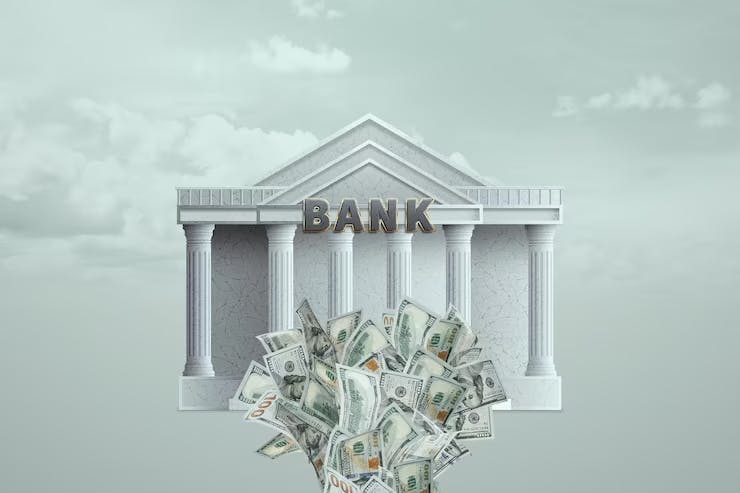The huge fuss about this anticipated 2023 recession is being a big deal among both the business as well as the working class population. So first let's understand what a recession is. To put it in simple terms, on a larger picture, it is the economic slowdown. And on a market level, it’s the slowdown of production in the market along with unemployment which would of course exuberant the prevailing low spending by the people in the country.
We as the global economies have faced enough recessions in the last 100 years, the major ones like
The Great Depression [1929 - 1939]
The Oil crisis in the 1970s
The Great Recession [2008 - 2009]
The Covid19 pandemic [2020 - 2021]
Yes, the last one doesn't sound like a recession but rather a global medical emergency right? That’s correct because what comes after that pandemic is going to grow into a recession. We already saw what a recession is in simple terms. But how would this affect an individual like us? It wouldn't be a complex thing to understand if we can split it into understandable compartments.
The Covid19 Economy
Covid19 affected almost all the major countries globally. Why “almost”? Because out of 195 countries in this world some tiny islands in the Pacific and North Korea claim to report ZERO covid cases. So, that’s the gist about that. And so, all these affected countries had to protect their people who were quarantined in their houses or at hospitals to face the financial expenses for their survival as well as their families.
So, how did the government manage to support its people? By providing support systems like subsidies, low-interest-rate loans, and loan waivers. Did it help? It did manage to save the economy from collapsing, so it’s more or less a win for the pandemic period alone. Because what comes after this heavy funding with a low-performing market would take us toward a recession.

During the pandemic, people managed to handle their financial crisis to some extent but it was at the cost of inadequate production and functioning of the service sectors in the country. People had money yet there was an acute shortage of goods and services for the people to avail. And the People who already had enough finances started to invest in stocks to secure their future financials, and that did make money over a year.
And now we are sitting over an economy with more money along with high demand for affordable goods. This is the time when the central banks would go into instant panic mode to handle this madness.
Financial measures
Indian Central banks like RBI have raised 1% every month over the last couple of months on the bank interest rates which currently have brought the rates to an average of 8 - 14% on various loans. This was an effort to take the money back into the financial institutions to save the country from inflation.

Does it sound like a good plan? That’s correct in a way, but assuming this same scenario in developed countries like in the west the damages were huge like mass unemployment, economic slowdown, layoffs, Non-residents on the brink of expiring work-visa, and so on. As mentioned above this is a pandemic so globally almost all the countries were affected, so this would be a common measure by all the central banks to handle this madness but the difference is, the usage of dollars to rebuild a pyramid and the usage of rupee or Yen to rebuild a Buddhist structure shows a distinct picture on the financial burden the country would endure.
And that rebuilding is happening now at the cost of raised interest rates and the anticipated stunted stocks in the trade market. And to ablaze these Russians have amassed at Ukraine, UK’s economy is rapidly shrinking and China’s prolonged pandemic lockdown has outmaneuvered the global financial crisis to a new level.
The anticipated 2023 recession
The International financial agency IMF has declared a highly anticipated 2023 global recession and now all the countries are rushing to save their economy expeditiously. Even then, the slow economy and the mass number of layoffs were fated. So, what can we as individuals learn from this upcoming recession? I could state 7 important outlooks on the economy to save some money in our pockets and some cortisol in our bodies.
1 Try a varied industrial approach:
It’s quite evident that IT core companies are on a laying off sphere but that’s not the whole story. The MAANG and other rapidly growing companies had already invested in huge projects during this pandemic and have recruited enough people to their R&D departments for their new ingenious future products. But now, upon this anticipated upcoming recession they had to cut down some costs on their long-haul projects that would consume a huge chunk of money from their pockets.

So, it’s a temporary slowdown yes, but it's not a setback for these future technology augmenters.
Note, only the IT core companies are facing a setback but definitely not the IT-dependent industries like Renewable energy, Healthcare, FMCG, real estate, and whatnot. Therefore, almost all non-core IT companies are in a sphere to digitalize and automate their workforce to catch up with global technological advancements. So, the hope for IT as the misconception goes is not doomed. So, if you are an IT employee don’t lose hope there is more for you to get allured to stay excited in your field.
2 It's time for South Asian countries to shine
As the developing countries are taking a break from their rapid growth it’s time for the highly populated young minds like India, China, Bangladesh, and Indonesia to cut short this race to a fair contention between the developing and developed nations.

So, job loss in developed nations is inevitable but that wouldn’t be a worry to a huge economy like India or their neighboring South-East Asian countries.
3 Freshers are the hope to build

Almost all the public, as well as the private sectors in developing countries, are seeking a mass workforce like freshers to build and rebuild. There is no leader without his/ her clan, and a clan cannot thrive or survive without a great leader. As we can understand, the mass builds the identity, so never worry, the freshers are the hope for updated minds to harness the new future for any company to thrive.
4 Economy is rebuilding with education sectors
Education is and always will be the backbone of any strongly growing economy. Post the recession(as it may come with any intensity) the countries will be again rebuilding the economy with more students enrolling for varied advanced and specialized courses with comparatively lower fee structures with affordable food and living cost.

So, a study abroad plan can be nurtured without any inhibition on future job opportunities. Because starting your education now can take you to the end of the recession, when you are ready for the job market.
5 Indian job market is safe for now and that’s the hope
The anticipation is that the job market in India which has the highest youth population in the world will manage to thrive. How? New employment opportunities for young minds.

The economy is already prepared enough to encourage more start-ups with high opportunities for the employees' dynamic growth and pay scale. All those companies who laid off the high-paying profiles in the west are likely to take resources from their cheaper and more efficient alternatives from India, Indonesia, Vietnam, Bangladesh, and Singapore. With this, the developing countries would somehow manage to grow with a mild hit to their knee.
6 Investments are still not a bad option

The stock market wouldn’t perform as expected for the upcoming anticipated recession years. So pulling out some stock money and investing in gold, land, or on the new “white gold” lithium would be a smart move. The market always performs to its luck for smart investors.
7 Lost job could be a way to reform
Losing a job could be more painful than it sounds yet all is not lost, reformation is always around the corner.

People who lost their jobs in the recent sphere to mass layoffs can extend their work visa to a student visa. Yes, if you are not fond of building your own business you can use this period to positively rebuild yourself on the current advancements with short or long professional courses. Once you are off your enhancement break with some great back-to-school moments, new-age friends, and sharpening your mind, then it would help you stand up with better fierceness to challenge this mere changing market with fated dynamics.

